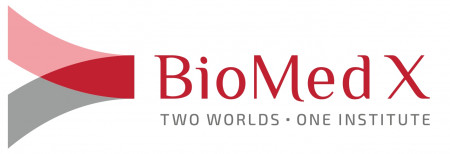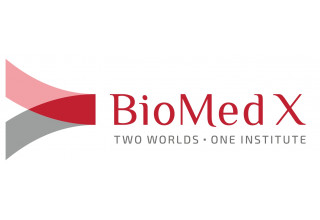BioMed X Inks Research Collaboration With Sanofi on Artificial Intelligence for Drug Development

HEIDELBERG, Germany, October 24, 2022 (Newswire.com) - BioMed X announced today the launch of their first joint research project with Sanofi. As part of this, a new research group to be established at the BioMed X Institute in Heidelberg, Germany, will focus on the development of a versatile computational platform able to accurately predict the efficacy of first-in-class drug candidates in virtual patient populations.
The research collaboration will address one of the most important bottlenecks of the pharmaceutical industry today: a 90% failure rate of new drug candidates during clinical development. It is the aim to transform the practice of medicine with the use of digital data and artificial intelligence, and thus, this project will benefit from Sanofi's deep datasets and expertise. As a proof-of-concept, the initial model will focus on chronic immune-mediated diseases such as atopic dermatitis (AD) and inflammatory bowel disease (IBD).
"In the past two years, we have gained significant experience in the field of artificial intelligence through our strategic partnership with AION Labs in Israel. Our new collaboration with Sanofi allows us to further extend our data science and AI expertise in Heidelberg, where we have developed an ideal incubation environment for biomedical innovation at the interface between academia and industry," explains Christian Tidona, Founder and Managing Director of the BioMed X Institute.
"Identifying quality clinical candidates for treatment of patients with unmet need is among the most rewarding parts of the research and development process," said Frank Nestle, Global Head of Research and Chief Scientific Officer at Sanofi. "This groundbreaking research collaboration will allow us to partner with scientists with unique computational skills and diverse capabilities that will help us to achieve our goals of bringing vital treatments to patients with chronic inflammatory diseases. This collaboration will be instrumental for advancing with our core mission of transforming drug discovery and development through application of AI-based modeling and simulation."
A diverse team of talented early-career scientists tackling this challenge will be jointly selected by the two companies through the successful and unique recruiting model designed by BioMed X, which entails a global call for application followed by a five-day innovation boot camp. The winning team will be hosted for up to five years by the BioMed X Institute, which is embedded in the life sciences campus of the University of Heidelberg, less than an hour away from Sanofi's Research & Development site in Frankfurt.
The new team will join the 11 research groups at the BioMed X Institute already working with complex human ex-vivo models and data science in oncology, immunology, and neuroscience.
Interested candidates who want to drive this research team are invited to respond to this international call for applications and submit a project proposal via the BioMed X Career Space at https://bio.mx/career before Jan. 8, 2023.
About BioMed X
BioMed X is an independent research institute located on the campus of the University of Heidelberg in Germany, with a world-wide network of partner locations. Together with our partners, we identify big biomedical research challenges and provide creative solutions by combining global crowdsourcing with local incubation of the world's brightest early-career research talents. Each of the highly diverse research teams at BioMed X has access to state-of-the-art research infrastructure and is continuously guided by experienced mentors from academia and industry. At BioMed X, we combine the best of two worlds - academia and industry - and enable breakthrough innovation by making biomedical research more efficient, more agile, and more fun.
Source: BioMed X Institute


